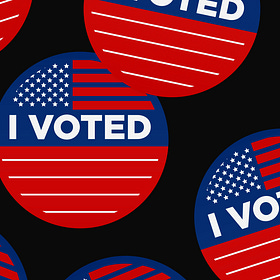Tuesday's Assorted Links
McFlurry's, bank accounts, The Washington Post, cost of college, and ranked-choice voting
Hi y’all! Here are five stories from this week that contained some neat applications of economic principles or are related to teaching:
The US Copyright Office granted a copyright exemption that will allow third parties to bypass digital locks and repair commercial restaurant equipment [CNN]
Treasury Secretary Janet Yellen has released plans to get more Americans to open bank accounts [Yahoo! Finance | Treasury Report]
The Washington Post’s decision to ditch election endorsements was met with over 200,000 subscription cancellations — about 8% of the paper’s paid readership [NPR]
The cost of college in the U.S. is going… down? [The Hill]
A visual explanation of how ranked-choice voting works [Reuters]
Why do the wealthy vote, even with high opportunity costs? Economic logic suggests they wouldn’t—yet they’re among the most consistent voters. The traditional cost-benefit analysis of voting misses an important factor. When voting is framed as a hedge against policy risks, it makes a lot more sense.
Why Do the Rich Vote?
As Americans head to the polls, an age-old question often comes up around this time: why do people vote at all? The decision to vote can seem a puzzle—especially for wealthier individuals who pay a higher opportunity cost for taking time away from work, family, or leisure. Yet these high-cost voters are more likely to show up at the polls. This behavior looks irrational at first glance, challenging the standard economic assumption that the marginal cost of time spent voting outweighs the marginal benefit of casting a vote.
Are you an educator looking for ways to introduce this week’s newsletter into your classroom? Sign up for the Classroom Edition of Monday Morning Economist to get assessments and lesson plans delivered straight to your inbox every week.





McDonalds bought a product with attendant service clauses in the contract. If Taylor misrepresented the amount of uptime, perhaps then they'd have a fraud claim. Otherwise, I fail to see how this is a matter for the courts. McDs can buy different machines from different manufacturers if they don't like how it works in practice.